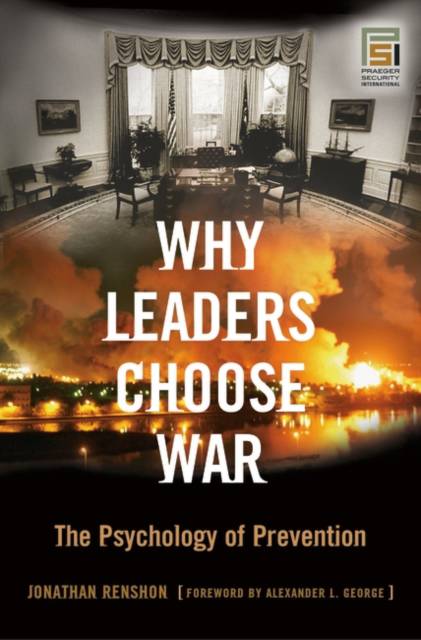
- Retrait gratuit dans votre magasin Club
- 7.000.000 titres dans notre catalogue
- Payer en toute sécurité
- Toujours un magasin près de chez vous
- Retrait gratuit dans votre magasin Club
- 7.000.0000 titres dans notre catalogue
- Payer en toute sécurité
- Toujours un magasin près de chez vous
Description
Preventive war has a long history in international politics, but until it became an instrumental part of the Bush Doctrine, it was mostly overlooked. Renshon argues that the best avenue for understanding decisions to initiate preventive action is through a close examination of the individual leader responsible for such decisions. In this work, he develops a theory of psychological motivations for preventive action. By examining five situations, including the Iraq war, he pinpoints the factors that matter most in decisions to take preventive military action.
There have been preventive wars throughout history, but the motivations behind them have remained elusive, and many crucial questions remain unanswered. What exactly constitutes preventive action? What differentiates preventive action from pre-emptive action? Are there significant differences between preventive strikes and full-on preventive wars? What is the relationship of preventive action to traditional concepts of deterrence, compellence, and international law? Finally, why do states initiate preventive action? Renshon argues that the best avenue for understanding decisions to initiate preventive action is through a close examination of the individual leader responsible for such decisions.Spécifications
Parties prenantes
- Auteur(s) :
- Editeur:
Contenu
- Nombre de pages :
- 240
- Langue:
- Anglais
- Collection :
Caractéristiques
- EAN:
- 9780275990855
- Date de parution :
- 01-05-06
- Format:
- Livre relié
- Format numérique:
- Genaaid
- Dimensions :
- 165 mm x 237 mm
- Poids :
- 562 g

Les avis
Nous publions uniquement les avis qui respectent les conditions requises. Consultez nos conditions pour les avis.






